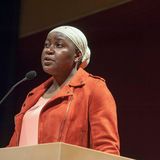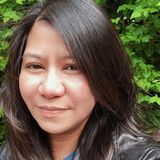Nederlandse uitleg hieronder
During this event, we showcase and reflect on initiatives against racism and discrimination taking place in different European countries. Minority communities in Europe are affected differently by changes in social and economic policies than autochthonous communities are. This can be seen for example when it comes to policies toward refugees and (undocumented) migrants. During this evening, we will look at different initiatives from various places within Europe that are working towards more humane policies and radical and inclusive democracy on the local level. Through both a plenary and theme-specific breakout sessions, we will go in dialogue about the following questions: What can we learn from each other? What influence do local initiatives have to make an impact? And, how can local initiatives grow to national and European-wide initiatives? What can we do to foster knowledge exchange between these local examples and how can we work together?























Nederlandse uitleg
Tijdens deze bijeenkomst zullen we initiatieven tegen racisme en discriminatie uit verschillende Europese landen belichten en bespreken. Door middel van zowel plenaire als thema-specifieke breakout-sessies, behandelen we de volgende hoofdthema’s: Hoe maak je impact door middel van lobbyen?, Het recht om te protesteren, dekolonisatie en autonoom organiseren, racisme in digitale ruimtes, Wat kunnen we van elkaar leren en welke invloed hebben lokale initiatieven om impact te maken? Wat kunnen we doen om kennisuitwisseling tussen deze lokale voorbeelden te bevorderen en hoe kunnen we samenwerken? Hoe kunnen lokale initiatieven uitgroeien tot landelijke en Europees-brede initiatieven? Tot slot, de verschillende regularisatiecampagnes voor migranten in Europa. Na afloop van dit evenement zullen er ook muzikanten optreden en een kleine marktplaats.
During the plenary opening, we will dive into the right to protest and demonstrate and in which ways these rights are currently impacted within different European contexts. Besides, we will reflect on the way that protests and grassroots initiatives (could) impact policy at the city level.
During the break, you will have time to move to their chosen different break-out sessions.
We will have four different break-out sessions, more information on these can be found below. They will cover topics about racism in data and digital spaces, influence through solidarity, decolonisation and commemoration and regularisation of irregular migrants.
During the break, you can move back to the plenary room (Grote Zaal).
During the plenary closing, we will end the programme with some last reflections on how can move forward towards more European-wide campaigns and strategies against racism.
More information about the programme
When reserving your spot, you can choose one of the break-out sessions below you would like to attend.
20:30 – Influence by solidarity
In this breakout session, we look at the use of platforms to build solidarity for collective action and change-making. Multiple actors are active within the local context of a city from individual activists, to grassroots initiatives to bigger NGO’s. How do these actors find each other, work together and how is collective action organised? What is the role of (local) alliances in community building and what kind of platforms do they use to advocate for policy change? What can the role be of city administrations to foster and finance these alliances? And how do we maintain an autonomous view as individual organizations and at the same time find a common ground with other organisations and groups of interest? We will discuss the local practices of solidarity networks in the cities Amsterdam and Spanish cities such as Barcelona and Madrid.
20:30 – Decolonization and Autonomous organising
Present-day inequalities, racism and discrimination are living legacies of colonialism that continue to impact marginalised and oppressed communities both locally and globally. What can we learn from different initiatives and movements that are making visible this connection between colonial histories and today’s inequalities? And what can we learn from their way of autonomous organising in order to raise awareness? A dialogue with activists from both Amsterdam and Paris.
20:30 – Racism in digital space and data
In a globalised world, everyone is exposed to the benefits and dangers of the internet and Artificial Intelligence (AI). However, are we aware of the implication of its use? Do we really understand what algorithms are and how they collect personal information for multi-million euro companies? What comes to mind when you read racist algorithms? During this session, we look at how racial and discriminatory biases are impacting digital spaces and policies that are data-driven. How can we make sure that data and digital space is not becoming an enabler of institutional racism?
20:30 – Regularisation campaigns for undocumented migrants
In many European cities, migrant-led communities have started to organise their communities and cities to demand regularisation (e.g. policy that makes irregular migration regular) for undocumented people. They are demanding humane refugee policies which are not focused on exclusion and marginalisation, but provide opportunities for undocumented people to contribute to their local surroundings. While the topic of regularisation of irregular migrants isn’t a priority in Amsterdam yet, partners from Geneva and Barcelona present their local efforts in organising and campaigning for regularisation. We invite you to this discussion on regularisation and hope to inspire you to make an effort to change our local, national and European regularisation policies!













